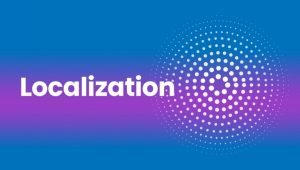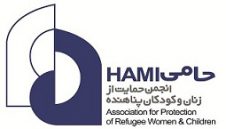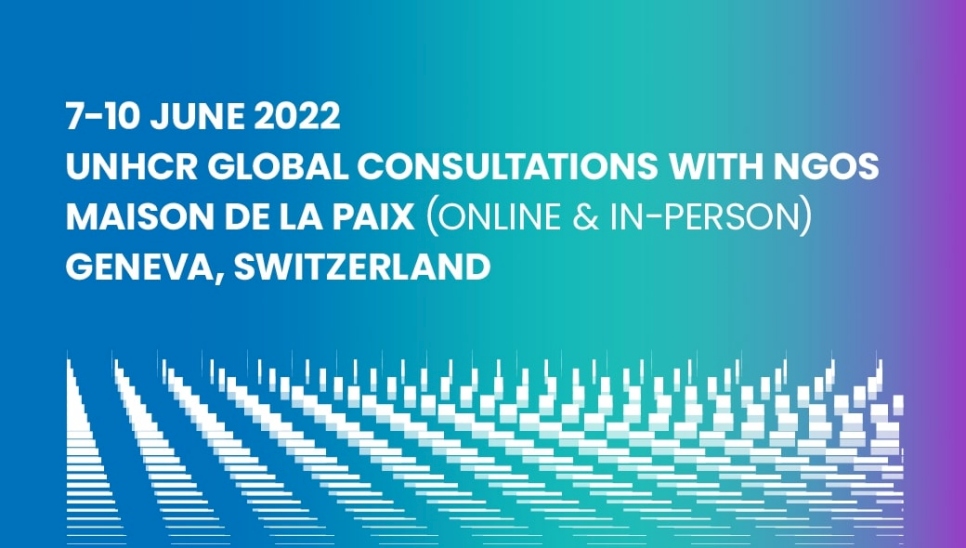The consultations will have two main themes:
- Localization
- Climate action
The Global NGO Consultations will feature two main thematic sessions on Localization and Climate Action, an opening and closing sessions with UNHCR senior leaders, an event on Partnerships, an NGO Innovation Award ceremony, as well as other side events (fully online).
HAMI paticipated in this event in person and online. Ms Ashrafi as HAMI representative attended the consultation to share HAMI s concern in the critical situation of refugees in Iran.
Concept Note
Localization and Climate Action
UNHCR Global Consultations with Non-Governmental Organizations (NGOs)
Geneva and online, 7-10 June 2022
A. PREAMBLE
Since 2019, the decentralization process undertaken by UNHCR has strengthened the presence of the
Regional Bureaus in the respective geographic regions. This decentralization has provided opportunities
for UNHCR to engage more directly with partners at the regional level. In light of this, UNHCR
introduced regional consultations with NGOs to complement the long-running Global NGO
Consultations, as a way of enriching these discussions within regional operational contexts.
The most recent Global NGO Consultations, which took place virtually in September 2020, resulted in
key recommendations that were presented at the 71st session of UNHCR’s Executive Committee of the
High Commissioner’s Programme (ExCom). Among these recommendations was that global and regional
consultations take place on alternating years and complement each other. As such, regional NGO
consultations took place in all seven regions throughout the year of 2021 and consultations with NGOs
will take place at global level, in Geneva and online (hybrid format) from 7 to 10 June 2022.
B. BACKGROUND
The theme for this Global Consultation will build on the Regional Consultations with NGOs, which led
to seven context-specific discussions around “Localization of humanitarian action and engagement with
communities in the COVID-19 context”. Given the launch of the UNHCR Strategic Framework for
Climate Action in 2021, some of the regional consultations also tackled Climate Action and the three
pillars covered by the framework: 1. Law and Policy, 2. Operations, and 3. Environmental Footprint.
Those themes were also addressed through the 2021 Monthly online Consultations organized by the
UNHCR Partnership and Coordination Service (UNHCR PCS) NGO and Civil Society team and ICVA. The
theme of the 2021 Regional Consultations with NGOs was selected following online surveys
disseminated to partners by each Bureau.
1. Localization
UNHCR and NGOs among others, made the commitment at the World Humanitarian Summit (WHS) in
May 2016 to “Empower national and local humanitarian action” and thus, to work towards greater
localization. Moreover, the New York Declaration and the Global Compact on Refugees (GCR) both refer
to the importance of engaging directly with forcibly displaced persons themselves. The 2019 Global
Refugee Forum (GRF) pledges equally stipulate engagement and partnerships with refugees, returnees,
stateless people, the internally displaced and asylum-seekers and require UNHCR and partners to ensure
that they are meaningfully engaged throughout the process. Engaging with them is also rooted in
UNHCR’s community-based protection approach and the age, gender and diversity (AGD) policy,
through which UNHCR committed to put refugees, returnees, stateless people, the internally displaced
and asylum-seekers at the centre of decisions that affect their lives and to ensure accountability to
affected people. In addition to the GCR and the Grand Bargain, the COVID-19 pandemic has also
undoubtedly confirmed the importance of localization, the participation revolution and of partnerships
with local actors in addressing humanitarian challenges faced by refugees, returnees, stateless people,
the internally displaced and asylum-seekers. The pandemic has particularly shown that refugees,
returnees, stateless people, the internally displaced and asylum-seekers and groups-led by them are
often the first responders in humanitarian emergencies and can provide support and services in areas
where UNHCR and NGOs have limited or no access. Moreover, they are the most knowledgeable about
their own needs, and the best advisers on what approaches are suited in their local area. Working with
communities, is therefore necessary to better understand their needs, consider and support their
response capacities, and to maintain a vital link to refugees, returnees, stateless people, the internally
displaced and asylum-seekers.

However, while the localization principle is widely endorsed, the modalities to develop localized
responses are multifaceted and often slow to take root within our institutions. Although an important
dimension, this goes well beyond directing additional resources to national NGOs to deliver services
while encompassing the development of partnerships with local actors and the framing of communitybased approaches, local leadership and empowerment, in support of socio-economic inclusion. Building
on renewed dynamics emerging from the pandemic, consultations with NGOs can bring a transformative
outcome in the localization agenda. Consultations held at regional level in 2021 generated
recommendations that should be further discussed and fulfilled such as improving communication and
strengthening channels between UNHCR and local organizations, calling to share partnership
opportunities, to support existing capacities and to strengthen mutual learning between local and
international actors. Greater focus should also be put on dismantling barriers to participation and seeking
involvement at all stages to inform policies, programs, and supporting governments to be more inclusive.
2. Climate Action
The climate crisis is already amplifying vulnerability, driving displacement and making life harder for
those already forced to flee. As a result, refugees, internally displaced persons and stateless persons are
on the frontlines of the climate emergency. Climate change impacts are ramping up multiple challenges
to people’s safety, security, and dignity, for instance by increasing poverty, as well as to their sustainable
access to food, water and livelihoods, while putting pressure on peaceful co-existence. Disasters
displace millions of people every year – including many in fragile and conflict-affected contexts. Most
remain within their countries of residence, while those who do cross borders in search of safety and
assistance tend to move to neighboring countries.
Climate Action is also, at its core, built on inclusive approaches and accountability to affected people,
aiming to amplify local and marginalized voices in confronting related challenges. As such, Climate Action
strives to ensure that all refugees, returnees, stateless people, the internally displaced and asylumseekers have equitable and non-discriminatory access to assistance and protection, and a say in policy
and operational decisions that affect their lives. The sessions on Climate Action organized in the context
of the 2021 Regional Consultations particularly highlighted the importance of the local impact of climate
change and disasters as well as the importance of engaging with local actors in efforts related to climate
action. This includes the need for increased advocacy and investing in research and support in
knowledge-sharing and capacity-building.
In line with the UNHCR Strategic Framework for Climate Action, those sessions also highlighted the
need to develop and strengthen collaborative approaches with a broad and growing range of partners
to mobilize the capacity, resources, knowledge and influence required to meet current and future
protection challenges related to the climate emergency. Building and strengthening displaced
communities’ resilience and preparedness to climate-related and other environmental risks was also
critically emphasized. Those sessions reflected on the need for effective outcomes, clear roles for each
partner and stakeholders and the need for accountability. Finally, the Consultations can be a space to
exchange on UNHCR’s efforts to support the Operationalization of the UNHCR Strategic Framework
for Climate Action and support regional action plans.
C. OBJECTIVES AND OUTCOMES
Based on the above background and grounded in the Principles of Partnership, the 2022 Global
Consultations will pursue the following objectives:
1. Exchange on progress made on region specific recommendations and commitments made through
the 2021 Regional Consultations and UNHCR-NGO Monthly Consultations; and review those that
could be endorsed to become global recommendations.
2. Develop new recommendations to inform future collaboration between UNHCR and NGOs to
prepare and respond to protection and solutions challenges related to localization and Climate
Action.


